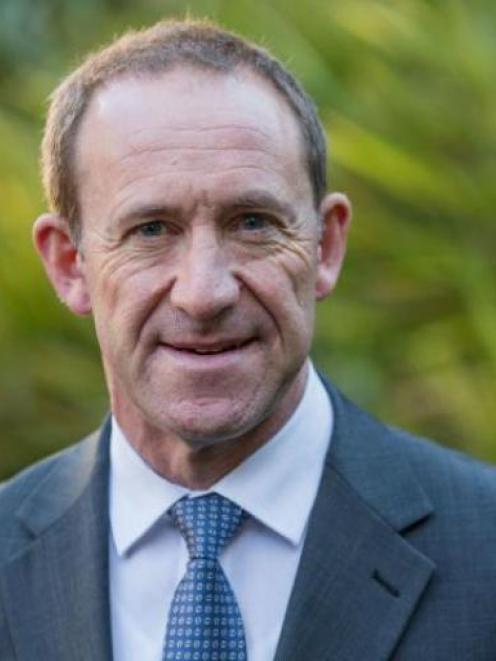
Justice Minister Andrew Little says he was surprised by some of the appointments made to a group advising the country's intelligence and security watchdog, but they offer some healthy scepticism.
Inspector-General of Intelligence and Security Cheryl Gwyn briefed Mr Little last week on the appointments to the group, which include investigative journalist and author Nicky Hager, human rights lawyer Deborah Manning and a journalist from the New Zealand Herald.
The group met for the first time last week.
"For her, and actually for me as well, public confidence in our security and intelligence agencies is absolutely vital and she wants to make sure there's sounding boards that she can go to to test approaches,'' Mr Little said.
"She knows, as we all know, the nature of these organisations. There is a lot done in confidence, there's a lot done in secret, but equally they don't get everything right, as some of her recent reports show.
"It is a constant effort to strive to get towards close to perfection for these agencies.''
He said some of the appointments were "interesting''.
"She's gone out and got, in addition to what you might describe as orthodox voices, some otherwise pretty challenging and sceptical voices.
"Nicky Hager is a well-known observer of our security and intelligence agencies.
"I would describe him as a sceptic. That is a healthy thing to have in a democratic society.
"I think what's important is that we are bold enough and brave enough to know that it is right to have critics of organisations and of the Government involved in this sort of exercise.''
Mr Little was surprised to see The New Zealand Herald investigative journalist David Fisher among the appointments.
"I would have thought there is a question about a journalist complying with their ethics in doing so but that's a judgement call, in the end, they have to make.''
He said the group was there to offer advice on principles and values, but would not have access to classified information.
Ms Gwyn said the group "brings together a broad range of individuals and groups, all of whom have specific expertise and experience that in one way or another touches on the work of the Inspector-general's office''.
"The Inspector-general stands in the shoes of the public. We try to ask what the public would ask,'' she said in a statement.
The Inspector-general scrutinises whether New Zealand's intelligence and security agencies (the NZSIS and the GCSB) act lawfully and whether reasonable New Zealanders would think their conduct was "right'', or proper.
"My office is relatively small, and the great breadth and diversity of experience among the members of the reference group will help us better ensure New Zealand's intelligence and security agencies act lawfully and properly.''
Mr Hager said he assumed Ms Gwyn had appointed him because of his knowledge of the intelligence agencies and his work in holding them to account.
National spokesman for GCSB and NZSIS Gerry Brownlee said the appointments raised serious questions for Ms Gwyn.
"The Inspector-general has said this group has been brought together to help her stand `in the shoes of the public' but several members of her group are far from objective in their view of our intelligence relationships or, in some cases, the existence of intelligence services at all,'' Mr Brownlee said in a statement.
"The Inspector-general needs to explain how this group was appointed.
"That they have been appointed and met with the Inspector-general before their appointment was made public is worrying, given the values she is supposed to promote.''
He questioned whether Ms Gwyn discussed the appointments with Prime Minister Jacinda Ardern before the first meeting and what statutory power she could cite for the appointments.
List of members:
Ben Creet: Issues manager, Internet NZ
Prof Rouben Azizian: Director, Centre for Defence and Security Studies, Massey University
Dr Nicole Moreham: Associate professor, Faculty of Law, Victoria University of Wellington
Dr Paul Buchanan: Director, 36th Parallel Assessments
David Fisher: Journalist, The New Zealand Herald
John Ip: Assistant dean, Faculty of Law, University of Auckland
Nicky Hager: Journalist, author
Thomas Beagle: Chairman, NZ Council for Civil Liberties
Treasa Dunworth: Associate professor, public international law, University of Auckland
Suzanne Snively: Chairwoman, Transparency International
Deborah Manning: Barrister
Comments
Cheryl Gwyn's own political history is intriguing as well. She describes herself as a former marxist activist and member of the Socialist Action League.
Its just token who would take any notice of these types.....they may think they are close to the government and S.I.S they wont ever be...
Opening out Security Intelligence to diverse influence widens surveillance to all extremist threats, including the far Right.











